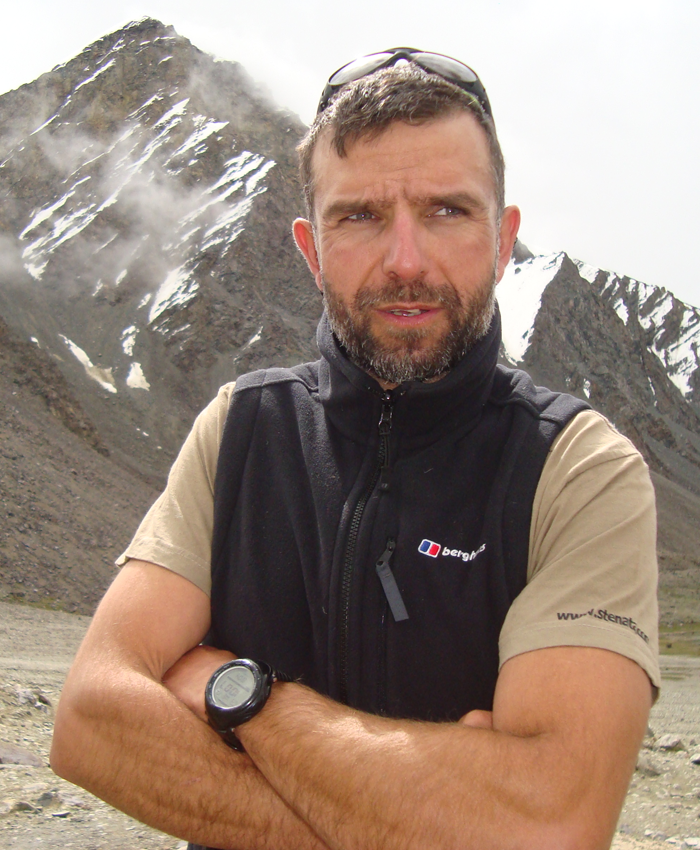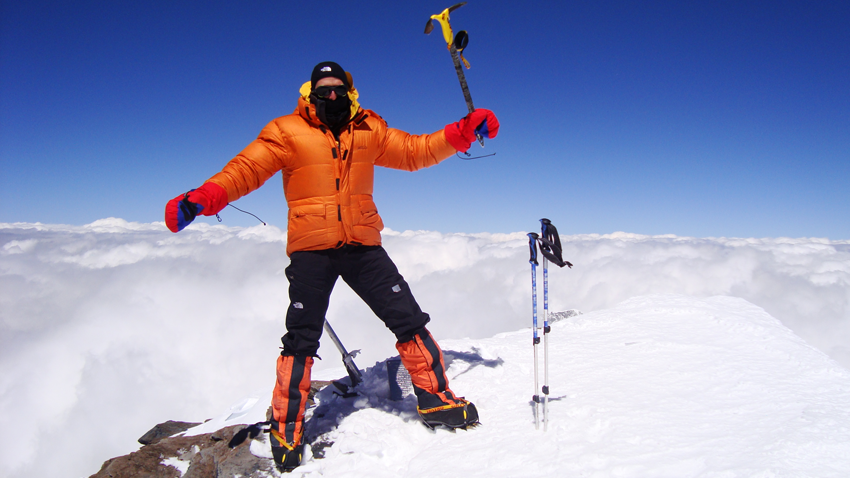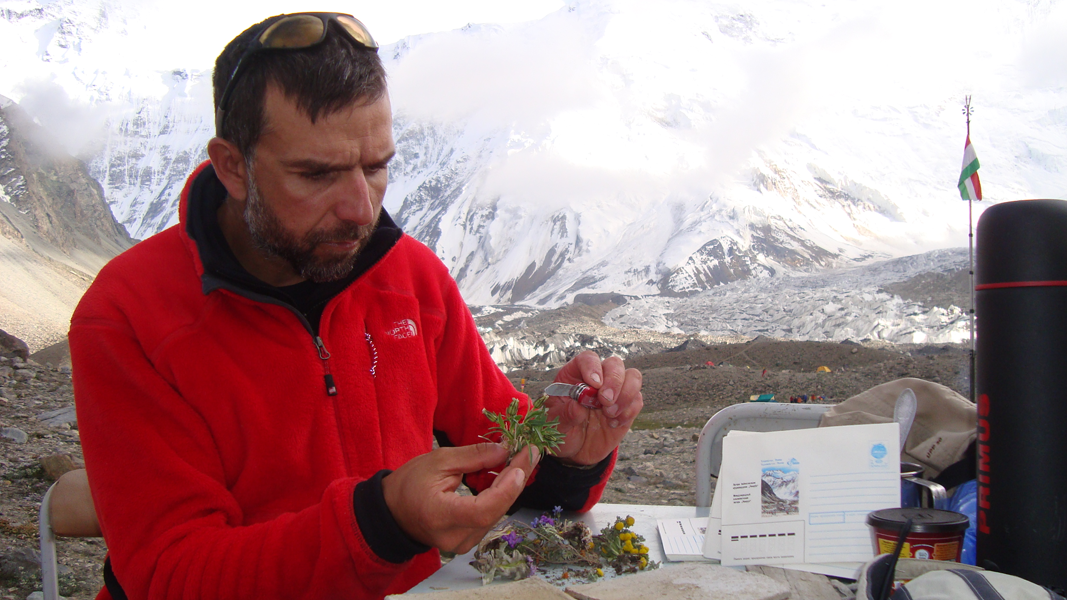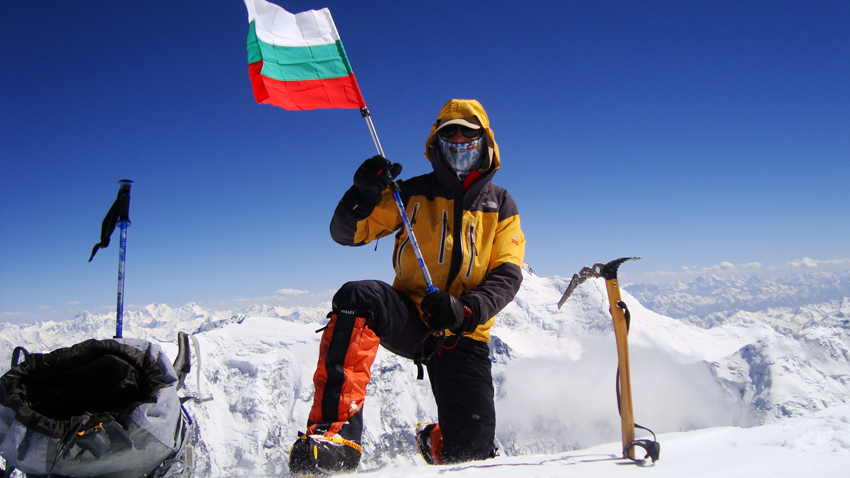 Concentration and discipline – these are, to my mind, two keywords in mountain climbing, said, in an interview, eminent mountain climber Boyan Petrov on a hot summer day – 13 August, 2012. Today he would have turned 47.
Concentration and discipline – these are, to my mind, two keywords in mountain climbing, said, in an interview, eminent mountain climber Boyan Petrov on a hot summer day – 13 August, 2012. Today he would have turned 47.
Full of energy and open to all things positive in any situation, with a wide smile and shrewd eyes, Boyan Petrov made thousands believe that each and every one of us can set down the horizon of our own abilities. That is why years later, in 2018, when he set out for camp 3 of the eight-thousander Shishapangma no one could believe he would never come back.
I saw Boyan for the last time on 29 April. He was going up to get acclimatized. He said he planned to scale the peak on 2 May. He walked so quickly – like a machine. At base camp I was given Boyan’s telephone. He had left it behind for me to use because he knew I had problems at work, says Alexander Nesterenko from Ukraine. Another Ukrainian saw Boyan for the last time through his binoculars at an altitude of about 7,500 m. On 3 May Sherpas found his tent half-filled with snow. Boyan was never found, he has remained forever on the mountain.

Boyan Petrov discovered caving when still a teenager. Then came mountain climbing. Both helped him in his profession as a researcher zoologist. From every expedition he went on to peaks or caves in distant lands, he brought back with him plants, rocks and animal species unknown to science for the collections of the National Museum of Natural Science in Sofia where he worked. He was diagnosed with diabetes but that was not something that could hold him back. Boyan Petrov is the first insulin-dependent mountain climber in the world to have conquered 10 eight-thousanders. And every time he did so without oxygen and without help from Sherpas because he believed that is what sport is all about. He brought home truths such as, for example, that reaching the grand objective takes many little steps along the way, that a boundary is not a restriction but a path to new, higher peaks, that the higher you climb the pettier everyday problems become.
Here is what Boyan Petrov said in 2012 about his first steps in climbing:
I have been climbing mountains since 1990 when what seemed a mundane visit to the former Soviet Union took me to Tian Shan. I was in the 10th grade and had already started caving. After that trip when I had climbed two three, four-thousanders, mountains fascinated me to such an extent that I wanted to climb higher and higher. When I came back I took climbing classes and I knew it was my life. Climbing skills, the ability to survive have made me so much better at zoology in the field. My job description reads: to study nature in Bulgaria and the world. So, mountain climbing came as an addition – to be able to do the research it helped me reach spots zoologists rarely get to.

Many would say that mountain climbing and diabetes do not go together, but you are living proof that is not so.
Yes, in 2000 I got diabetes. To begin with doctors kept telling me to forget climbing, caves and keep my mind on the disease. At the beginning I was a bit worried. But the very first month I went on a small cave expedition to Romania. I saw that with diabetes it was difficult as I had to have insulin five times a day and monitor my blood glucose levels, but it is possible. Three months after that expedition I scaled Mount Ararat in Turkey (5,136 metres). I got more and more venturesome, and in 2001 I took part in an expedition to climb the eight-thousander Broad Peak in Karakoram. I managed to make diabetes submit to my pursuits instead of the disease forcing me to obey its rules.
What is your most memorable climb?
In 2009, over 8 days I climbed two eight-thousanders – Gasherbrum I and II. I descended from one, I didn’t even go down to base camp, right in the middle I climbed the other one solo. At 40 metres below the top I was literally stopped in my tracks by the conditions. It got to be too dangerous for someone alone. As I was coming back from this expedition I fell into a glacial crevasse. I fell eight metres – the scariest thing that has happened to me in the mountain. That was something I had only experienced in dreams or imagined, but when it happens in reality it is like a cross in your life. Thank God there were Spanish climbers there who found me. It happened on a flat plateau at 5 in the morning and no one knew how and where I had fallen. I had some injuries but everything healed. What remained was the psychological trauma of passing away just like that, without anyone ever finding out where you went to.
What qualities do you need to possess to be a climber, besides being a hothead?
Hothead is what you absolutely must not be. You have to be smart, prepared, on your toes and really physically hardy.

What is the thrill when you reach the top?
To me eight-thousanders are outer space. You look down, the Earth is round, the horizon is curved. From each peak you see the next one. Once you have climbed up so high, the whole world is around you. The feeling is of being above everything. And when you return to Sofia all problems seem so small, so insignificant compared to what you have surmounted. So climbing helps you cope with any problem in life.
Photos: private library
Bulgarian Karlos Nasar won the world title in the men's 89 kg category at the 2024 World Weightlifting Championship in Manama. Nasar set two world records. 183 kg in the snatch and 405 kg in the total. Karlos Nasar also tried to better his world..
Bulgaria's best individual rhythmic gymnastics athlete in recent years, Boryana Kaleyn, has officially ended her active sports career. She announced her decision in a post on social media. Kaleyn is a silver medallist at the Paris Olympics, an..
Bulgarian heavyweight boxing pride Kubrat Pulev won the World Boxing Association (WBA) regular title in a fight with Mahmoud Charr last night at Arena Sofia in front of a crowd of over 12 thousand. Kubrat Pulev won a unanimous decision over Mahmoud..
The famous athlete Stefka Kostadinova was chosen by the Bulgarian Olympic Committee to represent Bulgaria at the photo exhibition opened at the European..

+359 2 9336 661
